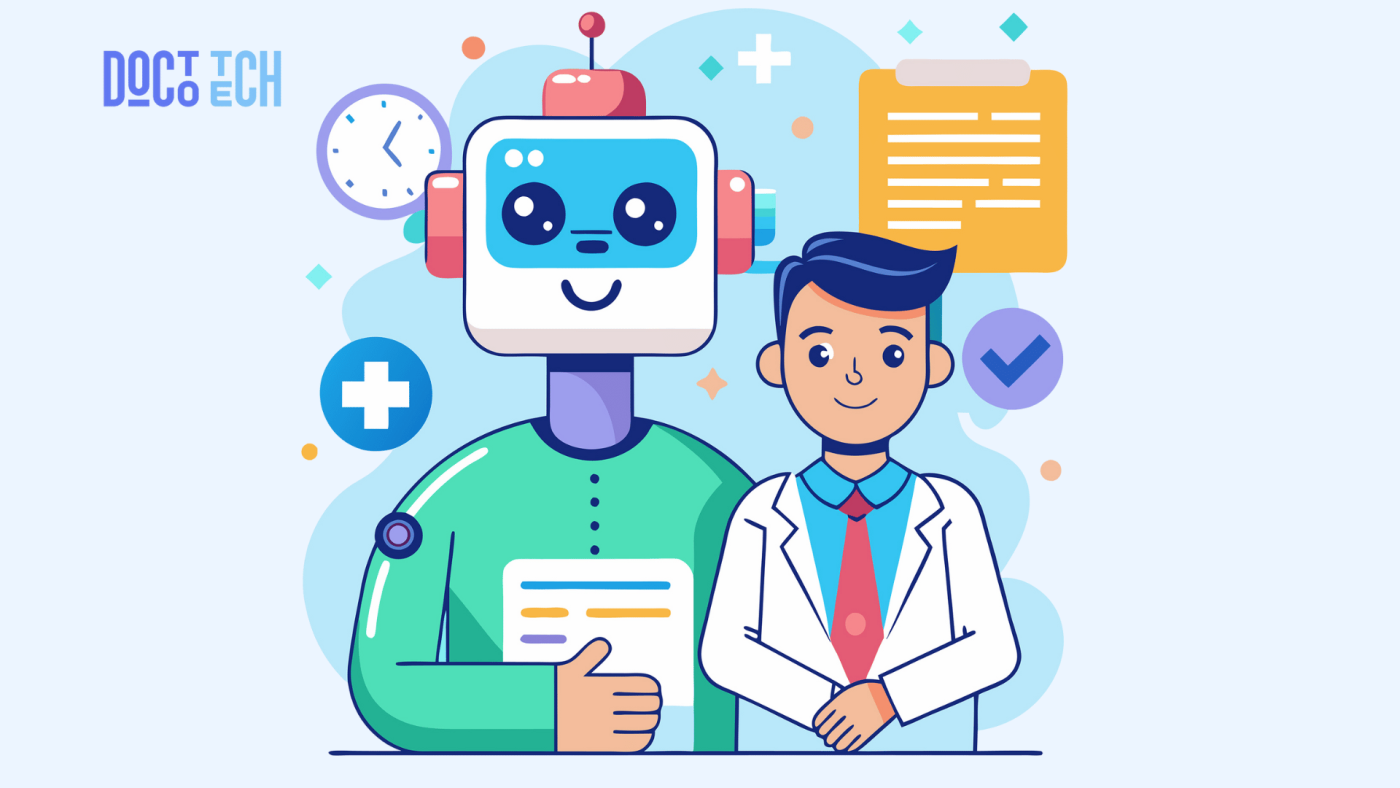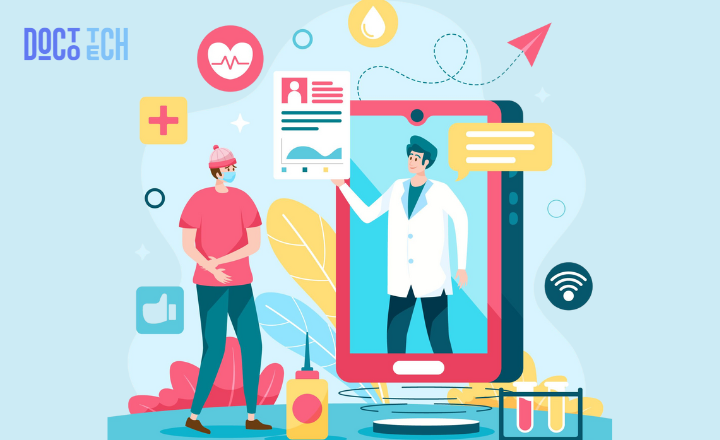The Future of AI in Healthcare and What It Means for Clinics
The integration of AI in healthcare is rapidly transforming the way medical care is delivered, from diagnosing diseases to managing patient data. As artificial intelligence (AI) continues to evolve, it holds the potential to revolutionize clinical workflows, enhance patient care, and improve decision-making processes. Clinics that embrace AI will be better positioned to provide more efficient, accurate, and personalized care.
Here’s a look at the growing role of AI in healthcare and how clinics can prepare for this technological shift.
1. AI-Powered Diagnostics: Speed and Accuracy
One of the most impactful uses of AI in healthcare is in diagnostics. AI algorithms can analyze medical data, such as imaging scans, pathology slides, and lab results, to identify patterns and detect abnormalities with incredible precision. This allows for faster, more accurate diagnoses, especially in complex cases such as cancer detection, radiology, and cardiology.
Key Applications of AI in Diagnostics:
- Medical Imaging: AI algorithms are increasingly being used to analyze X-rays, CT scans, and MRIs, identifying tumors, fractures, and other abnormalities more quickly than human eyes.
- Pathology: AI can assist pathologists in analyzing tissue samples, helping to identify diseases such as cancer more accurately and at an earlier stage.
- Predictive Diagnostics: By analyzing patient data, AI can predict the likelihood of diseases such as diabetes, heart disease, and strokes before symptoms appear, enabling earlier interventions.
Clinics that incorporate AI into their diagnostic workflows can expect improved accuracy, faster turnaround times, and better patient outcomes.
2. AI in Patient Management: Enhancing Efficiency
In addition to diagnostics, AI is playing a significant role in patient management by streamlining administrative tasks, managing patient records, and improving workflow efficiency. AI-powered systems can automate time-consuming tasks like scheduling, billing, and patient data entry, freeing up staff to focus more on patient care.
Benefits of AI in Patient Management:
- Automated Scheduling: AI can optimize appointment scheduling by analyzing patterns in patient attendance, no-shows, and peak times, ensuring that clinics run efficiently.
- Virtual Assistants: AI chatbots and virtual assistants can handle patient inquiries, appointment bookings, and follow-up reminders, reducing the burden on administrative staff.
- EHR Management: AI-powered systems can organize and analyze patient data from Electronic Health Records (EHRs), identifying trends and alerts that need immediate attention, improving overall care coordination.
By using AI to manage routine administrative tasks, clinics can reduce operational bottlenecks, improve workflow, and enhance the patient experience.
3. Personalized Treatment Plans
AI is paving the way for more personalized treatment plans based on a patient’s unique medical history, genetics, and lifestyle factors. By analyzing vast amounts of patient data, AI systems can recommend individualized treatments that are more likely to succeed, improving patient outcomes.
How AI Supports Personalized Care:
- Genomic Medicine: AI algorithms can analyze genetic data to identify personalized treatment plans, especially for conditions like cancer, where targeted therapies can significantly improve results.
- Chronic Disease Management: AI can help manage chronic conditions by continuously analyzing data from wearables or remote monitoring devices, providing tailored recommendations for treatment adjustments.
- Medication Optimization: AI can predict how patients will respond to certain medications based on their medical history and genetics, helping to avoid adverse reactions and improve medication effectiveness.
As AI continues to advance, clinics can expect to provide more tailored and effective treatment plans, leading to higher patient satisfaction and better long-term outcomes.
4. Virtual Health Assistants and Telemedicine Integration
AI-powered virtual health assistants are becoming increasingly popular for helping patients manage their health outside of the clinic. These digital assistants can answer health-related questions, provide medication reminders, and monitor symptoms. When combined with telemedicine, AI can provide real-time assistance to healthcare providers during virtual visits.
Key Features of AI Virtual Assistants:
- Symptom Monitoring: AI-powered apps can track patient symptoms over time and flag any concerning changes for healthcare providers.
- Medication Reminders: Virtual assistants can remind patients to take medications on time, improving adherence to treatment plans.
- Telemedicine Support: AI can assist healthcare providers during virtual consultations by pulling up relevant patient data, suggesting questions, or offering potential diagnoses based on the information provided.
The combination of AI and telemedicine enables more continuous and comprehensive care, even when patients are not physically in the clinic, improving patient engagement and outcomes.
5. AI-Driven Predictive Analytics for Better Decision-Making
One of the most transformative uses of AI in healthcare is predictive analytics. By analyzing patient data, AI can help healthcare providers make more informed decisions about patient care. This can include predicting disease progression, identifying patients at high risk of complications, or suggesting preventive measures based on lifestyle and health trends.
Applications of Predictive Analytics:
- Disease Progression: AI can forecast how diseases like diabetes, cancer, or heart disease will progress in individual patients, allowing for earlier and more proactive interventions.
- Risk Stratification: AI algorithms can analyze large datasets to identify patients who are at higher risk for specific conditions, enabling clinics to prioritize care and resources more effectively.
- Operational Forecasting: AI can also predict operational trends such as patient volume, staff scheduling needs, and inventory requirements, helping clinics manage resources more efficiently.
By leveraging AI-driven predictive analytics, clinics can make data-informed decisions that enhance patient care, reduce complications, and optimize clinic operations.
6. Preparing Your Clinic for AI Integration
To fully leverage AI in healthcare, clinics must take steps to prepare their infrastructure, staff, and workflows for the technology. AI implementation requires the right tools, training, and strategic planning to ensure a smooth transition.
Steps to Prepare for AI Integration:
- Invest in AI-Ready Technology: Ensure your clinic’s technology infrastructure is compatible with AI platforms. This includes upgrading Electronic Health Record (EHR) systems, implementing cloud-based solutions, and investing in secure data management tools.
- Train Staff on AI Systems: Equip healthcare providers and administrative staff with the knowledge and skills they need to work alongside AI. Training should focus on understanding AI tools, interpreting AI-generated insights, and applying them to patient care.
- Start with Small AI Projects: Begin by integrating AI into specific areas like appointment scheduling, diagnostic assistance, or virtual health support. Starting small allows your clinic to gradually adopt AI without overwhelming staff or disrupting workflows.
- Ensure Data Security and Privacy: Implement strong cybersecurity measures to protect patient data when using AI systems, ensuring compliance with regulations like HIPAA and safeguarding against potential breaches.
By taking these preparatory steps, clinics can smoothly transition to AI-driven care and reap the benefits of enhanced efficiency and improved patient outcomes.
Conclusion: Embracing the Future of AI in Healthcare
The future of AI in healthcare holds immense potential for improving diagnostics, enhancing patient care, and streamlining clinical operations. As AI technology continues to advance, clinics that embrace these innovations will be better equipped to provide more personalized, efficient, and accurate care. By preparing now, healthcare providers can ensure that they remain at the forefront of medical advancements, delivering higher-quality care in an increasingly competitive landscape.
DoctoTech specializes in helping healthcare providers integrate AI tools into their practices, from diagnostics to patient management. Let us guide you through the process of adopting AI, ensuring your clinic is ready for the future of healthcare.














